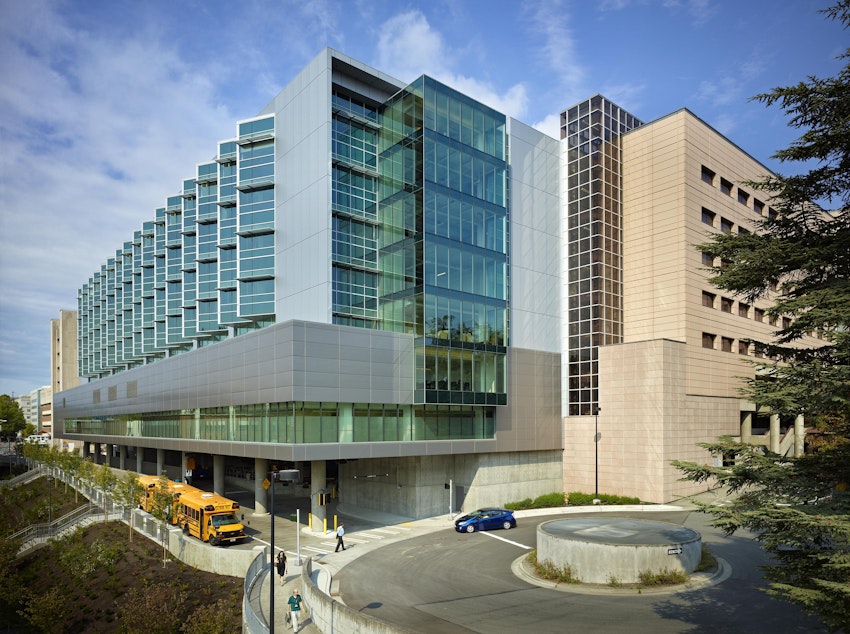Unsettled contract negotiations add to strain on UW resident doctors on Covid-19 frontline

Medical residents and fellows at the University of Washington have been so frustrated by contract negotiations they bought a full-page ad in the Seattle Times last week.
The residents and fellows are part of the Washington Housestaff Association, which has 1,400 members. They used the ad space to call out Paul Ramsey, CEO of UW Medicine, on May 3.
“Over the course of several years, your mistreatment of doctors in training has led us to unionize. Today, we have reached a breaking point,” the ad reads. “Our working conditions have taken a toll on our wellness and ultimately a toll on our ability to care for our community."
Doctors in the union had been working without a contract since it expired in mid-2019, and negotiations have been ongoing since. But then, according to union members, the university told members that their most recent offer was the last.
In a surprising move, the Seattle City Council backed the resident physicians union in a letter to Ana Mari Cauce, president of the University of Washington.
Councilmembers urged Cauce to negotiate a fair and equitable contract.
Sponsored
“It is concerning that these healthcare providers, who are so crucial to the wellbeing of our communities, have not been offered an equitable contract appropriately valuing their hard work, dedication and commitment,” the council wrote.
Residents and fellows are doctors early in their careers, working grueling shifts as part of their training. These physicians are required to work 28-hour shifts, up to 80 hours a week. Compared to the 100 training institutions leading in our country, UW residents are among the lowest paid, according to the union.
“The work environment has definitely changed. We definitely feel the risk of contracting this virus at work,” said Krishna Prabhu, internal medicine resident and board member of the UWHA.
Currently, first-year residents earn $58,224 a year, according to the UW website. The median household income in Seattle was a little more than $93,000 last year -- and some residents must live within 15 minutes of the hospital, which limits housing options.
The university has offered a 2 percent pay increase, but Prabhu said that would effectively be a pay cut, given inflation and rising cost of living.
Sponsored
The union wrote that the UW last year received $104 million to support training residents and fellows. And that administrators had received 11% raises annually on average.
Union members questioned why residents weren't afforded the same kind of pay increases.
“It's all nice and good to call us healthcare heroes," Prabhu said. "But, you know, we're really wanting to just be able to afford to live on the front lines so we can continue to serve our community."
George Plummer, a resident, acknowledged that they weren’t necessarily making minimum wage. But graduating from medical school with $200,000 in debt, which factors into home and car loan eligibility, is also a financial factor.
“The patients are our number one focus, but it would be helpful to be compensated accordingly,” Plummer said.
Sponsored
In a news statement, UW wrote that there have been 30 negotiation meetings since July 2019. The university's proposal included benefits and a salary increase, according to the statement.
“We have attempted to make a compelling offer as part of bargaining, taking into account the value residents and fellows bring to our healthcare system, remaining competitive as an employer and training institution, balanced with our system finances,” UW Medicine wrote.
UW Medicine projects financial strain because of the coronavirus pandemic. The hospital system said Monday financial loss is forecast to exceed $500 million by the end of summer.
The loss was caused by missing clinical revenue, due to cancelled non-emergency and elective procedures. This, combined with the high cost of personal protective equipment and diagnostic testing needed to treat patients with Covid-19.
To make up for the financial shortfall, UW Medicine officials said they would reduce senior leader salaries and implement staff furloughs.




